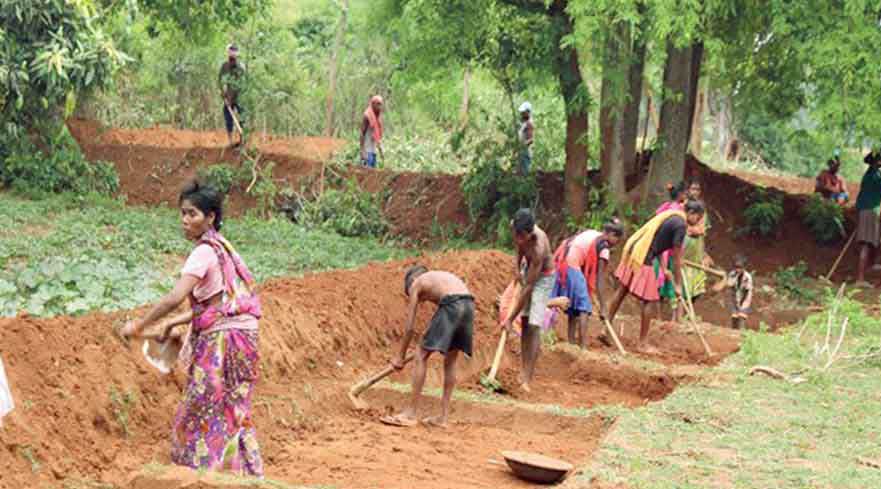The Narendra Modi government has passed onto the states the onus of increasing the number of permissible workdays under the 100-days-a-year rural job scheme MGNREGA.
In a reply in the Lok Sabha, minister of state for rural development Niranjan Jyoti on Tuesday cited the case of Odisha, which is spending from its pocket to provide additional workdays under the Mahatma Gandhi National Rural Employment Guarantee Act.
Minister Jyoti said in her written reply in the Lok Sabha: “…The sate government may make provisions for any period beyond the guaranteed 100 days. Recently, the State Government of Odisha has requested to enable the provision in NREGASoft (an online platform for the MGNREGA) for additional 200 days in 20 migration-prone blocks of 4 Districts. The additional expenditure shall be borne by the State Government. The request has been accepted and provision has been enabled in NREGASoft.”
Civil society organisations, labour economists and researchers have been demanding that the number of days a family is allotted work in a year under the scheme be raised to 200 from 100 because of the distress in the job sector caused by the pandemic. They have argued that the MGNREGA is a demand-driven programme that should be flexible enough to allow more days of work.
Tapojay Mukherjee, a member of the NREGA Sangharsh Morcha, a civil society organisation championing the cause of workers under the scheme, said the Odisha model should not be imposed on other states.
“The MGNREGA is a central government job scheme. The primary responsibility of administering the scheme and bringing necessary changes according to the ground situation is with the central government. It is a just demand that the permissible workdays be enhanced to 200 days a year,” Mukherjee said.
Sameet Panda, co-convener of the Odisha Khadya Adhikar Abhiyan, said the state government had started providing additional work in the districts of Kalahandi, Balangir, Nuapada and Bargarh where thousands of people traditionally migrate every year in search of work to other states. NGOs are involved in sensitising locals about demanding work under the NREGA.
The Odisha government has set up a funds corpus to provide work over and above the NREGA ceiling. For the additional 100 days, the workers are being paid the amount fixed for the state agricultural labour wage, which is higher than what is given under the MGNREGA wage, Panda said.
Labour economist Santosh Mehrotra said the unemployment situation had remained critical in 2021. The central government should accept the demand for 200 workdays under the NREGA and bear the additional expenses. He also called for a job guarantee scheme for urban people.
According to the quarterly data of the Periodic Labour Force Survey (PLFS), the unemployment rate in urban areas was 10.3 per cent in October-December 2020. It declined to 9.3 in the January-March quarter in 2021. This is much higher than the unemployment rate of 7 per cent in urban areas for 2019-20, according to PLFS 2019-20.











